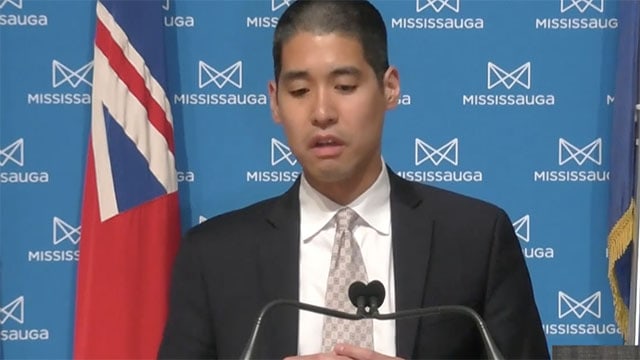Mayor and public health reveal Mississauga neighbourhood with higher concentration of COVID-19 cases
Published June 4, 2020 at 3:36 pm

At a recent press conference, Mississauga Mayor Bonnie Crombie and Dr. Lawrence Loh, Peel Region’s Medical Officer of Health, revealed that the northeast end of the city has a higher concentration of COVID-19 than some other neighbourhoods.
“We’re starting to see stabilization, but in communities where we have large household clusters, such as in the north part of our city, like in Malton, there may be slightly higher incidents,” Crombie told reporters.
Loh, who recently revealed that the region is seeing a lot of workplace and household spread (particularly in Brampton), confirmed Crombie’s response.
“Peel Public Health has released geographic data and as it pertains to neighbourhoods of concern, Mayor Crombie is correct in identifying certain neighbourhoods in the northeast, particularly around Malton, where there have been higher concentrations of individuals who reside there who have had positive tests,” Loh said, adding that people who visit these neighbourhoods are not necessarily at higher risk than they would be in other parts of the city.
“It’s really important to remember that this does not indicate risk. Individuals can continue to circulate throughout our community and risk exists everywhere, which is why everyone must continue to be safe.”
During the press conference, Loh pleaded with residents to help the region reach a goal of zero new cases of COVID-19 daily. He also said that the novel coronavirus is disproportionately impacting the region’s most vulnerable residents.
“The data is increasingly clear: The most vulnerable of us in this society have born the brunt of this disease. We have seen it among seniors in our long-term care homes and we now see it in our racialized population and communities that face structured disparities every single day,” he said.
In April 2020, Peel Public Health announced that it’s piloting a project that will enable it to collect race- and occupation-based data on COVID-19 patients in the region.
The goal of collecting the data—which is also being done in Toronto and a number of U.S. jurisdictions—will be to determine if people of certain backgrounds (or who work in certain sectors) are more likely to suffer ill effects from the novel coronavirus.
The Ontario NPD has called on Doug Ford to mandate the collection of race-based data across the province.
Addressing local protests against anti-Black racism and systemic discrimination, Loh advised rally attendees to be mindful of COVID-19 and exercise caution.
“I know the terrible acts recently witnessed abroad have led to a desire to come together when speaking out. I too have a voice against oppression and stated unequivocally that racism and discrimination have very real health impacts in our community that must be addressed. I only ask though that those who want to battle the very real health risk of racial inequity also take reasonable steps to protect themselves against the health risks of COVID-19.”
Public health agencies have advised protesters to maintain physical distancing, wear non-medical masks, wash and sanitize their hands frequently and refrain from appearing at any rally or protest if they feel sick.
“While avoiding crowds would be ideal, please remember that whatever you do, distancing, handwashing and non-medical masks are now very much a part of public life–and please, stay home if you are sick. This is our new normal and I repeat, everyone must keep taking these measures, to get us to our goal of zero new daily cases,” Loh said.
insauga's Editorial Standards and Policies advertising





